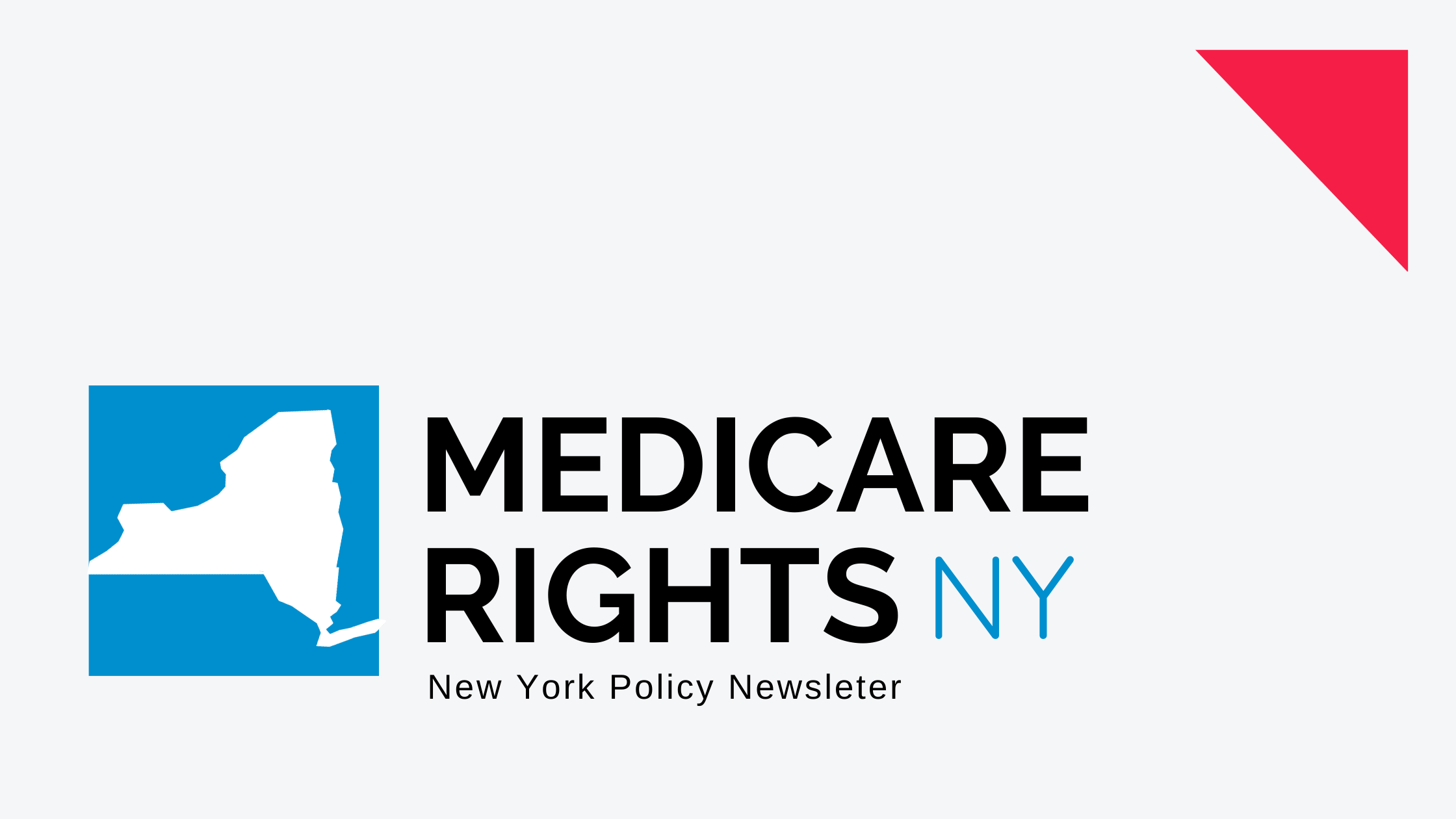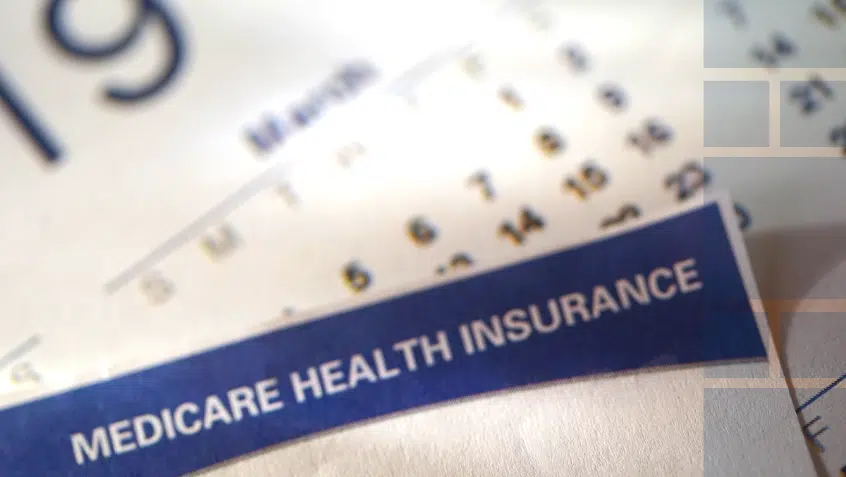Join Us Live for a Discussion on Medicare, Democracy, and the Future of Health Care

Medicare Rights Advocacy
Governor Cuomo releases New York State budget
The 2021 NYS Executive Budget includes several provisions affecting dually eligible individuals, long-term care, and integrated care. The enacted changes affect Dual-eligible Special Needs Plans (D-SNPs), Managed Long-Term Care (MLTC) plans, and various Medicaid services. However, the effective dates for some of these changes remains unclear.
One enacted change requires that dually eligible individuals who are enrolled in D-SNPs but do not require long-term care must enroll in an available affiliated Medicaid plan. This requirement may mean increased statewide enrollment in Medicaid Advantage plans, as well as a greater number of Medicaid Advantage plan offerings. Medicaid Advantage plans combine a D-SNP and a Medicaid managed care (MMC) plan and are designed to provide more integrated care.
Effective March 1, 2020, through March 31, 2022, the state has placed a moratorium on processing and approving applications from insurers to operate MLTC plans. This moratorium includes applications from insurers that currently offer MLTC plans and want to expand their service area or scope of eligible population. Individuals enrolled or interested in enrolling in an MLTC plan will still have access to currently available plan options during the moratorium, but there will be no new plans.
Integrated appeals implemented in Medicaid Advantage Plus
The integrated grievance and appeals demonstration for Medicaid Advantage Plus (MAP) plans began January 1, 2020. The Centers for Medicare & Medicaid Services (CMS) and New York State Department of Health (NYSDOH) entered a memorandum of understanding (MOU) for the demonstration, which will run through 2023. The MOU and other materials related to this demonstration are posted on the CMS New York Financial Alignment Initiative webpage. There are eight MAP plans that are using the integrated grievance and appeals process (Elderplan, Healthfirst, VNSNY, Riverspring, Senior Whole Health, Centers Plan, Village Care and Agewell). Not all MAP plans are currently eligible to use the integrated appeals process due to not being fully aligned. However, NYSDOH reports that there are MAP plan applications under review so additional MAP plans may soon be offering integrated grievances and appeals.
Under this demonstration MAP grievances and appeals are integrated, which means a beneficiary uses a single process regardless of whether their denial is for a Medicare or Medicaid covered service. The demonstration intends to ease the appeals process for dually eligible individuals enrolled in MAP plans.
For more information on MAP integrated appeals, visit Medicare Interactive.
Enrolling in Medicare during the coronavirus public health emergency
During the coronavirus public health emergency, local Social Security offices are closed to the public, but many services are available online and over the phone.
- Online Medicare applications can be found and submitted here: https://www.ssa.gov/benefits/medicare/
- Answers to some questions can be found online, or beneficiaries can call the national Social Security Administration helpline at 800-772-1213
- Local Social Security offices may also be able to help
Many people can use the online application to apply for Medicare, particularly to enroll in Part A and Part B at the same time if they have not enrolled in Medicare before. Those who cannot enroll in Medicare online should contact their local Social Security office. These individuals will likely need to mail or fax paperwork.
Medicare has also made temporary changes to a process called equitable relief so that individuals can request more time to enroll in Medicare Part B (or premium Part A). For more information, please visit Medicare Rights’ blog.
Medicare Advocacy Toolkits provide guidance for New York advocates helping beneficiaries navigate complex Medicare topics
Medicare Rights has released two toolkits, which were developed for New York advocates helping older adults and people with disabilities navigate Medicare. While these toolkits are intended for a New York audience, they may offer lessons to other states and be useful resources as advocates and policymakers think about ways to improve the federal Medicare program.
Medicare Advocacy Toolkits will roll out in 2020, with covered topics including:
- Medicare enrollment
- Durable medical equipment (DME) access
- Medicare for individuals with End-Stage Renal Disease (ESRD)
- Part D drug access
To view the toolkits, visit Medicare Interactive. Support for this work was provided by the New York State Health Foundation (NYSHealth).
New York State and Federal Government Updates
Internal Revenue Service releases new electronic portal
The Internal Revenue Service (IRS) released a new electronic portal to assist people receiving Supplemental Security Income, recipients of certain Veterans Affairs (VA) benefits, and others in accessing federal stimulus payments. Individuals can go to the portal, enter their personal information, and receive their stimulus payment.
The Social Security Administration and U.S. Department of the Treasury announced that SSI recipients with no dependent children (for whom they would be eligible to receive an additional $500) will receive stimulus checks automatically. Those with qualifying children will need to provide additional information via the portal above.
For more information, see the U.S. Department of the Treasury’s press release.
Register for Medicare Rights NY
Medicare Rights NY is a regular email newsletter with updates on health policy and advocacy developments in New York State and their impact on older adults and people with disabilities. Stay up-to-date on key policy developments that affect older New Yorkers and those with disabilities.
Show Comments
We welcome thoughtful, respectful discussion on our website. To maintain a safe and constructive environment, comments that include profanity or violent, threatening language will be hidden. We may ban commentors who repeatedly cross these guidelines.
Help Us Protect & Strengthen Medicare
Donate today and make a lasting impact
More than 67 million people rely on Medicare—but many still face barriers to the care they need. With your support, we provide free, unbiased help to people navigating Medicare and work across the country with federal and state advocates to protect Medicare’s future and address the needs of those it serves.
The Latest
Most Read
Add Medicare to Your Inbox
Sign up to receive Medicare news, policy developments, and other useful updates from the Medicare Rights.
View this profile on InstagramMedicare Rights Center (@medicarerights) • Instagram photos and videos









